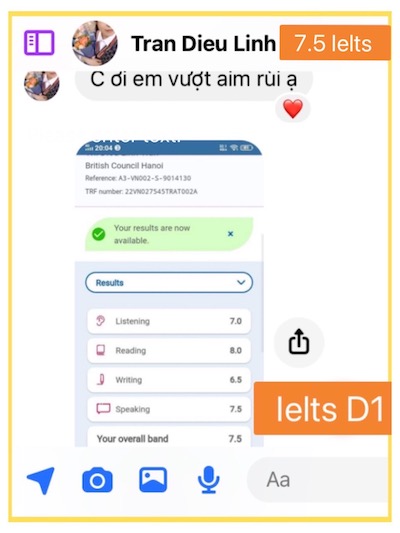Ielts Speaking Part 3 Money
Ielts Speaking Part 3 Money Samples 9.0
Ielts D1
Ielts Speaking Part 3 Money Samples 9.0
Is money everything to you?
-
Not at all, by no means. On the one hand, I think money is important, we need enough money to buy necessities and to enjoy a comfortable lifestyle and may be it’s nice to splash out every once in a while and treat yourself to something special, maybe a meal at a fancy restaurant, but for me, certainly money is not everything. I think there are much more important things in life, such as friendships and family, enjoying the little things or the little moments in life. I know it’s a bit of a cliché, but smelling the flowers, a beautiful view, watching a funny moment where the kitten is rolling on the floor playing with the wool. Those are also very important things. So, while I think money is important, it’s not the most important thing for me.
When do people in Vietnam often give children money?
-
It’s customary to give children lucky money on their birthday or on Lunar New Year Holiday. Typically, it’s just a small amount because giving them a large sum might spoil them. Some parents also offer their kids monetary rewards if they perform well at school or at home. For instance, if they achieve an A for any subject, they might be given one hundred thousand dongs which is roughly 5 US dollars.
Do you think it’s good to give children money?
-
I think money education is crucial for kids because their future lives depend on it. In order to learn about money, however, they must have money first, so it’s essential to provide them with that learning tool. That said, how and when to give them money is also equally important as how much to give them. If children feel that they can earn a lot of money effortlessly, then parents’ purpose to educate them about the world of finance has failed.
Is it good to give children money for doing housework?
-
I do think so. Children might be more willing to help out with tedious chores if they’re provided with financial incentives. Besides, when children are rewarded with an allowance for completing chores properly, they will learn the value of money and realize that they must work in order to earn. With a strong work ethic, they will become responsible and financially savvy individuals. That said, I think it’s sensible to give them just a small amount because they must be aware of the fact that they are also responsible for doing chores as a member of the family. Besides, giving them money for helping out might teach them to expect rewards rather than fulfill their responsibilities.
Is using cash popular in Vietnam? Has it always been the same?
-
Yes, it’s still widely used in rural areas where banking services are limited or difficult to access. By contrast, cash is no longer the main payment or transaction tool in major cities as urban dwellers are more tech-savvy and prefer online shopping. Apparently, paying by credit cards or digital wallets is more convenient for them.
Why are credit cards more popular than cash now?
-
Without a doubt, it’s easier, faster and more convenient to pay by credit cards. Transactions can be made any time anywhere no matter how large the amount is. This is particularly crucial because Vietnamese people are increasingly doing business with oversea companies and shopping on virtual platforms. Integration with digital payment systems and contactless technology has made credit cards more accessible than cash. Additionally, using credit cards can be safer than carrying cash. If a credit card is lost or stolen, consumers can report it and typically won't be liable for unauthorized charges. Finally, many credit cards offer rewards programs, cash-back incentives, discounts, travel benefits, and other perks that encourage consumers to use them instead of cash. (*Integration = sự hợp nhất / contactless: không tiếp xúc / liable for : chịu trách nhiệm trước pháp luật / unauthorized: không chính chủ / perks = benefits)
Do you think it’s important to teach children about money (use, save, earn, invest..)?
-
Totally. Financial literacy can lay a foundation for a happy and successful life. Children must learn how to handle money because it plays a vital role in their lives. Specifically, it’s essential for them to learn how to earn, spend, and above all save money. By saving for rainy days, people can obtain financial stability and security, which is essential to their mental health. What’s more, when people spend less than they earn, they could invest in business or other money-making tools to gain passive income. This way, they won’t have to work like a beaver their whole life just to make a living. Instead, they can allow themselves to retire early and pursue their passion.
What problems people might have if they suddenly have a lot of money?
-
I’ve learned that having a lot of money cannot guarantee happiness. Money only makes people become more of what they already are. If they are miserable, more money will make their lives more miserable. For instance, many people decided to quit their jobs when they won a jackpot. Then they spent money like water, splashing out on fancy cars, parties and holidays. Uncontrolled spending soon made them fall into poverty again. Worse, they might become an easy target for con artists or criminals. (*con artists :kẻ lừa đảo)
Do you think the rich should give money to the poor?
-
That’s an intriguing question. It’s a moral obligation for affluent people to help those who are living in poverty. But I’d argue that giving money directly to needy people is not the best way to help because easy money makes them become dependent and lazy. Of course, in some cases, short-lived financial help might be appropriate. For example, for those who have lost everything to a natural disaster like an earthquake or a typhoon, nothing can make a better relief than money. It allows them to access food and other necessities to survive first before starting a life again.
Hoc Ielts 7.5 - 8.0 tai Ielts D1 with Co Duong 8.5:

